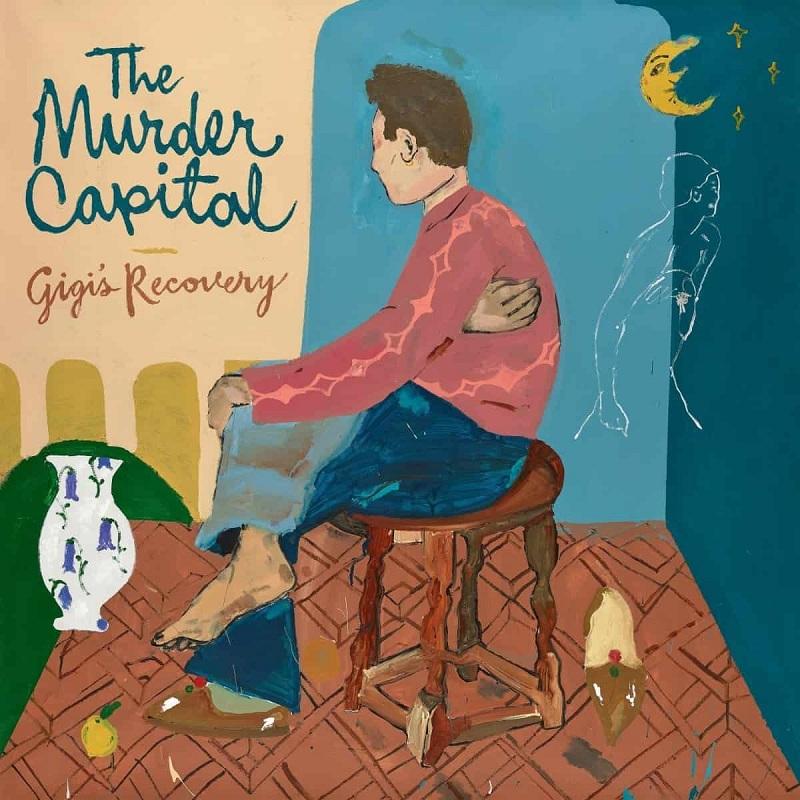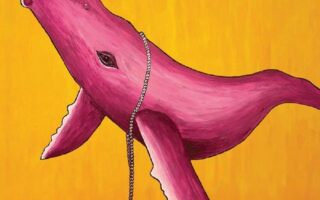
A distinct, winning return for The Murder Capital.
Comparisons can be the sincerest form of flattery, or they can do harm.
When The Murder Capital first emerged in 2019 they were almost immediately tagged in the same space as fellow Dubliners Fontaines D.C., but whilst sharing a city, attentive listening revealed as many differences as much as there was some obvious kinship.
Similar lazy analogies have often been made between Yard Act and The Fall, but the quintet – five people brought together at college with the specific goal of making music – were, on their debut album When I Have Fears, as much about mood and texture as go-ahead songwriting.
Live, vocalist James McGovern proved a magnetic, physical leader who at the climax of shows would often throw himself into the audience.
All those connections were broken soon after when all five members found themselves pandemically isolated together in the Irish countryside as they set about making Gigi’s Recovery.
They’d already agreed their second album wouldn’t sound like their first, but gradually the changes took form with guitarists Damien Tuit and Cathal Roper bringing in synths and FX pedals whilst McGovern threaded lyrics randomly snatched from notebooks and listened to Frank Sinatra for inspiration.
These intense periods of togetherness made the group look to each other and consider shared meaning. As a reflection of that the album is bookended by two short and introspective pieces, opening with the atmosphere-soaked Existence and closing with Exist.
The latter they’ve claimed is at one level a collapsed version of the former, both grappling with emotional states of flux, pieces of a jigsaw which thematically explores change, realisation and, in their words, finding, ‘a strength you never knew you had’.
What lies between – and beneath – them is a complex, literate, non-linear journey that shows remarkable songwriting dexterity for what is after all only the band’s second release.
Throughout, it’s never quite what you might expect it to be, from the eerie looped sample used in Crying (taken from a video tutorial on opera singing) to the lo-fi electronics of The Stars Will Leave Their Stage, a song written about ignoring other people’s expectations and relying on your instincts.
On that and at many other points the influence of post-The Bends Radiohead is evident. Under this skin Belonging is guitar-less, whilst the album’s title-track runs to what once might have been considered an indulgent near-six minutes, gently traversing the contours of post punk as if McGovern and co. are like tourists revisiting some home country now turned strange.
In the odd moments when they do linger though Gigi’s Recovery shows another side of itself: Only Good Things is McGovern’s first love song – or at least the first song about love – and as close to happy as they’ve ever been, a melody good enough to side with anything in fellow countrymen Microdisney’s exceptional back catalogue.
The centerpiece however is Ethel, its body made from two different song halves somehow welded to each other. Here as jarring, discordant noise provides the undertow to nocturnal city trips and mental falls, through what feels like a side door to hope a blurred future and the present then collide, before the dream finishes in a rural, parental bliss.
The Murder Capital didn’t used to sound like someone else, not if you actually listened to them. And now on Gigi’s Recovery they don’t even sound like they used to sound like, untethered from their own past.
Change is permanent, but this is a record you may not want to leave behind for a very long time.





